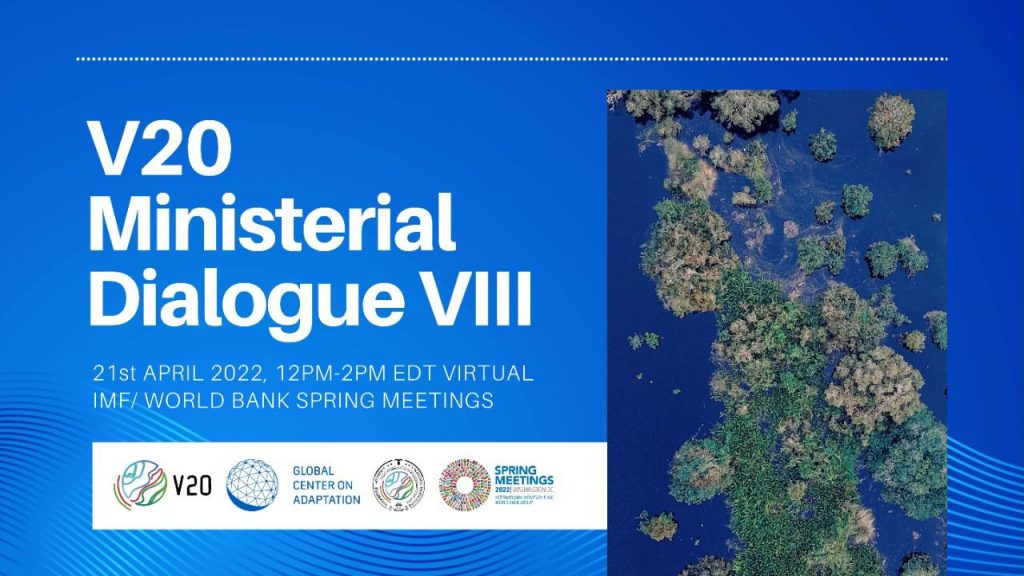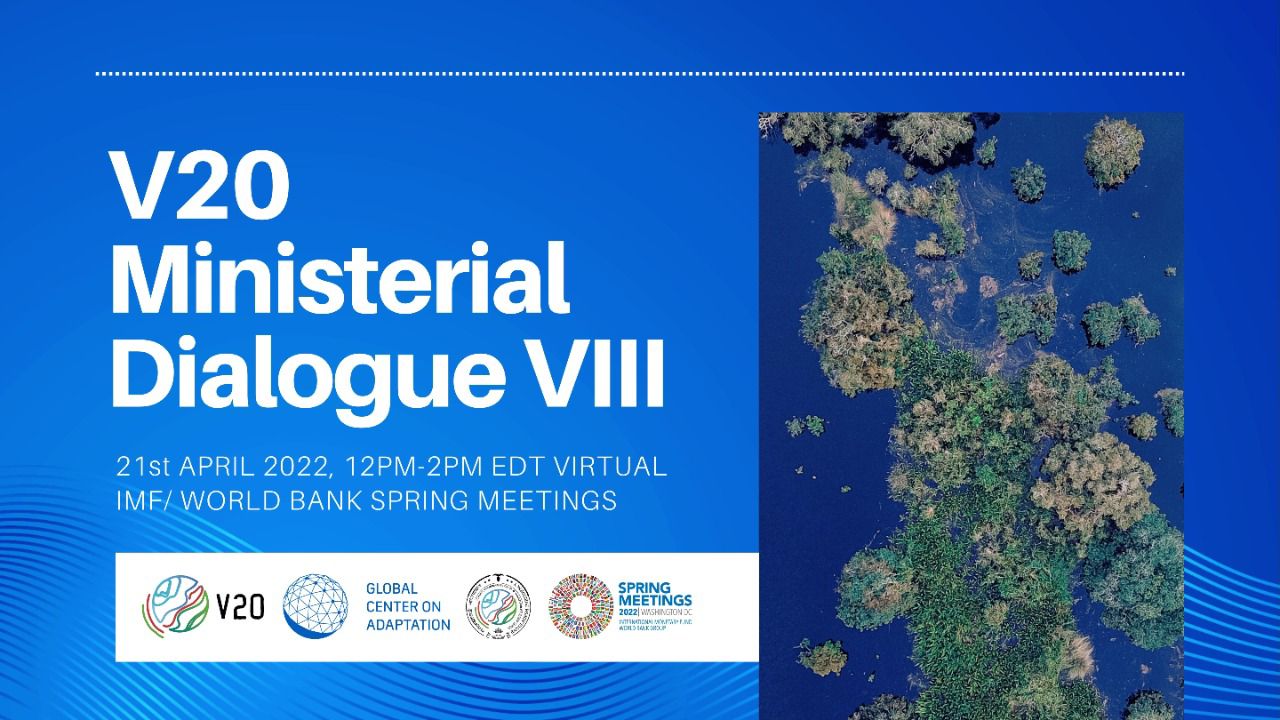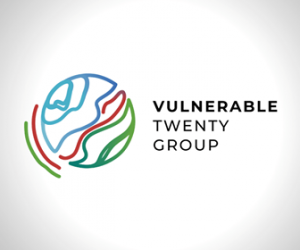Statement delivered by Ms. Kate Hampton, CEO, Children’s Investment Fund Foundation

V20 MINISTERIAL DIALOGUE VIII- 21 April, 2022
Statements
10:00 pm Dhaka time/12:00 pm Washington DC time
Statement delivered by Ms. Kate Hampton, CEO, Children’s Investment Fund Foundation
Ms. Kate Hampton
CEO, Children’s Investment Fund Foundation
Good day, Ladies and Gentlemen. I’m really honored to participate in the V20 Ministerial Dialogue because climate change and climate justice need to be confronted at the IMF and World Bank Spring Meetings. CIFF stands behind the world’s most climate vulnerable in the fight for climate justice. And here’s the V20’s call for greater voice globally and within the G7 and V20, as an official constituency group.
COVID, climate, and now conflict have laid bare that the international financial system is no longer fit for purpose. Finance is going to be essential to the global transition. But there’s a huge divergence in access to much needed finance. Beset with embedded in systemic inequality, and millions of being thrown further into poverty by these interlinked crises.
Of the four trillion required globally out to 2050 just to tackle climate change, nine trillion is needed for developing countries and outside China we only have three hundred billion today. There’s an urgent need for reform so that just transitions can be within reach for everyone. At the moment, vulnerable and developing nations are struggling with high costs of capital, limited access to markets, and mounting debt.
The global financial system needs a complete overhaul, including the multilateral development banks are missing in action in the fight on climate change. The main six multilateral development banks have half a trillion in assets, yet they continue to invest mainly in low-risk projects, such as mature renewable technologies, with a strong preference for lending over more important catalytic instruments like guarantees and equity. As well, national development banks representing a further eleven trillion in assets, do not have the mandate that they need to ensure that climate and development are addressed together.
The global financial system needs to adjust so that the climate crisis can be tackled head on in fair ways. This should be done by expanding capacity for local currency financing and hedging on a long-term basis. This is going to be vital for programs such as energy access. Disaster risk financing mechanisms, like insurance pools and initiatives like the V20 Sustainable Insurance Forum need much more work. And we need continuous innovation and financing to tackle the growing challenges that we face.
MDBs need to be much more catalytic and to mobilize capital from the private sector at much greater scale. Despite several years of discussion, we are making little progress on mobilization of private capital. MDBs need to harmonize their reporting of climate financing to their shareholders and develop common strategies, which will lead to collaboration on both funding and technical assistance. Alongside private sector initiatives, such as [inaudible] need to step up and work with governments and development banks to find concrete ways of allocating much more capital to emerging economy, climate transition and adaptation, and do so in local currency. We need to make sure that the successor to the hundred billion climate finance target is based clearly on need — which kinds of capital are needed, in which currencies for which sectors, in which geographies. And this must be in a format that crowds in private finance, domestic and international.
We were deeply disappointed that COP26 did not lead to the creation of a loss and damage facility. And we continue to stand behind all those speaking up for the world’s most climate vulnerable and advocating for the creation of such a facility. We welcome the efforts of the V20 in the design and testing of a new loss and damage financing facility that will support the most effective communities. This needs to be a positive model to show that loss and damage can be tackled in a feasible and just manner. Progressing the loss and damage agenda must be our collective effort.
And as CIFF, we will continue to align our efforts to ensure that financing for loss and damages catalyze the head of COP27 and in the long-term. We’ve already committed one million to this agenda this year. And we’re working closely with civil society, government, and academic stakeholders engaged in loss and damage to expedite institutional progress and bring further government and non-governmental funders to the table. We look forward to working closely with the V20 in the coming months in this regard and greatly value our partnership already. Thank you.
[END]




